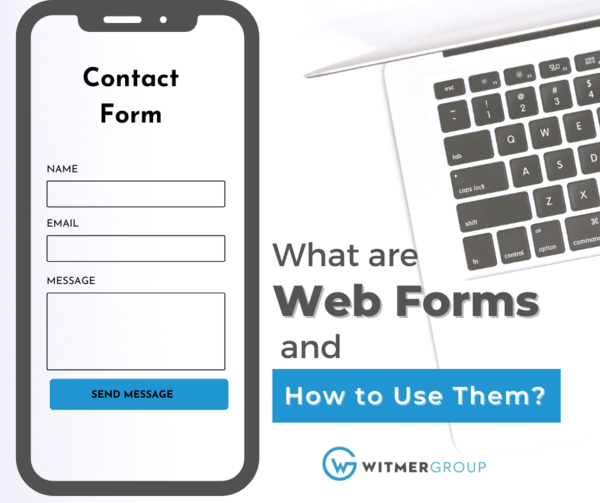
How many prospective clients or customers have come to your website—only to leave without providing you with their contact details for a follow-up email or phone call?
Web forms are an essential tool that all business websites should have. There are two ways to add a form to your site. You can hire an expensive coder to do it for you, or you can use third-party software that allows you to effortlessly add a form with the click of a button.
Read on to learn more about web forms and the value they’ll add to your business.
What are Web Forms?
As their name suggests, web forms are a form that resides on your website. They come in all shapes, sizes, and types. Pop-up, embedded, contact, and lead gen are just a few of the many types of web forms you can add to your site.
If you don’t have a form on your site, your only hope of someone contacting you is for them to browse to your Contact Us page—and then copy your email address and paste it into their email client—or find their cell phone and manually dial your phone number.
Web forms make it 10x easier for your website visitors to contact you. They offer an effortless way that encourages them to reach out—instead of the cumbersome process of copying down your email address or phone number.
Types of Web Forms
There are many different types of web forms, such as:
Contact forms—this is one of the most common types of web forms you’ll find on the internet. It allows a website visitor to quickly ask a question, get a refund, or voice a concern. Contact forms usually exist on the Contact Us page and often request the user to leave their name, email address, and message.
Order forms—these types of forms enable your visitors to place an order. This includes a method to pay via credit card or bank account. Order forms are often very detailed and require multiple pieces of information from the user.
Lead generation forms—this form converts website visitors into leads. They often ask for the person’s name, company, email address, phone number, and product/services that they’re interested in. It’s best to have your sales team strike while the proverbial anvil is hot—the longer you wait, the colder the lead becomes.
Survey forms—these forms are best used to survey your website’s visitors. For example, you could ask their opinion on how easy your new website design is to use. Or you could ask them questions that would enable you to determine if it would be profitable to bring a new product to market.
Registration forms—registration forms enable someone to register for your website. For example, if you sign up for Amazon, they will have you fill out a form with your phone number and email address.
HubSpot and Web Forms
While you can hire someone to design you a web form—or download a WordPress plugin—you often get what you pay for. HubSpot is a third-party company that provides an easy and effective way of integrating visually appealing web forms into your website.
Not only can you easily create and add new forms, but you can also connect a CRM and eliminate manual data entry. For example, your sales reps and agents have more important things to do than to fill out contact details. A web form will perform the heavy lifting and allow your team to sync data from the HubSpot CRM to your forms automatically.
Witmer Group and HubSpot
The tools offered by HubSpot are crucial for businesses to have the best chances possible to obtain the information they need from their potential customers. As a certified HubSpot Partner, Witmer Group leverages the platform to help our clients accelerate engagement with more qualified prospects.
Contact us to book a HubSpot discovery call to learn more.
